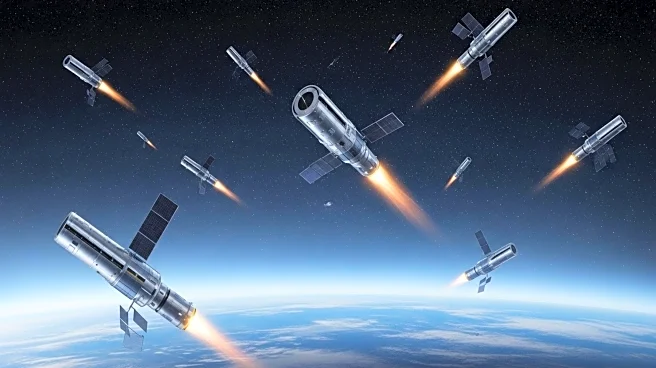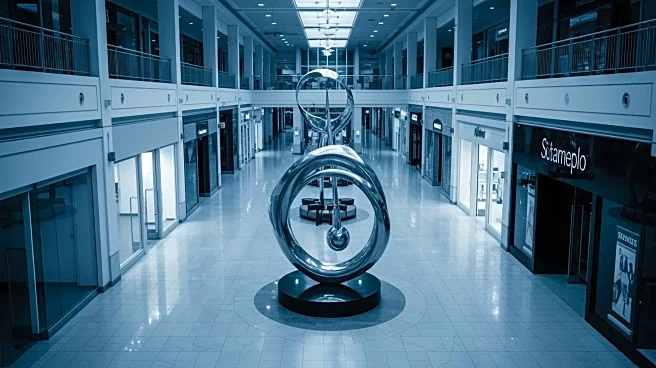What is the story about?
What's Happening?
Starlink satellites, part of SpaceX's satellite internet constellation, are increasingly reentering Earth's atmosphere, creating visible trails in the sky. According to retired Harvard astrophysicist Jonathan McDowell, the frequency of these reentries is rising, with estimates suggesting up to five satellites could fall daily. This trend is linked to the growing number of satellites in Low Earth Orbit (LEO), including those from other companies like Amazon Kuiper. The reentries are influenced by factors such as solar activity, which can accelerate the process.
Why It's Important?
The increase in satellite reentries highlights the challenges of managing space debris and the potential risks associated with crowded LEO environments. As more satellites are launched, the likelihood of collisions and subsequent debris increases, raising concerns about Kessler syndrome, where debris from collisions leads to further collisions. This situation poses risks to both space operations and safety on Earth, as uncontrolled reentries could result in injuries or fatalities. The issue underscores the need for effective space traffic management and international cooperation to mitigate risks.
What's Next?
The Federal Aviation Administration has warned that by 2035, falling debris could result in injuries or fatalities every two years. This prediction calls for urgent action to develop strategies for safe satellite deployment and reentry. Stakeholders, including governments and private companies, will need to collaborate on solutions to manage space debris and ensure the sustainability of satellite operations. Innovations in satellite design and reentry control may be necessary to address these challenges.
Beyond the Headlines
The growing issue of space debris raises ethical questions about the responsibility of satellite operators to prevent harm and protect the space environment. It also highlights the need for international regulations and standards to govern satellite operations and ensure accountability. The situation may influence public perception of space exploration and the role of private companies in shaping the future of space activities.















